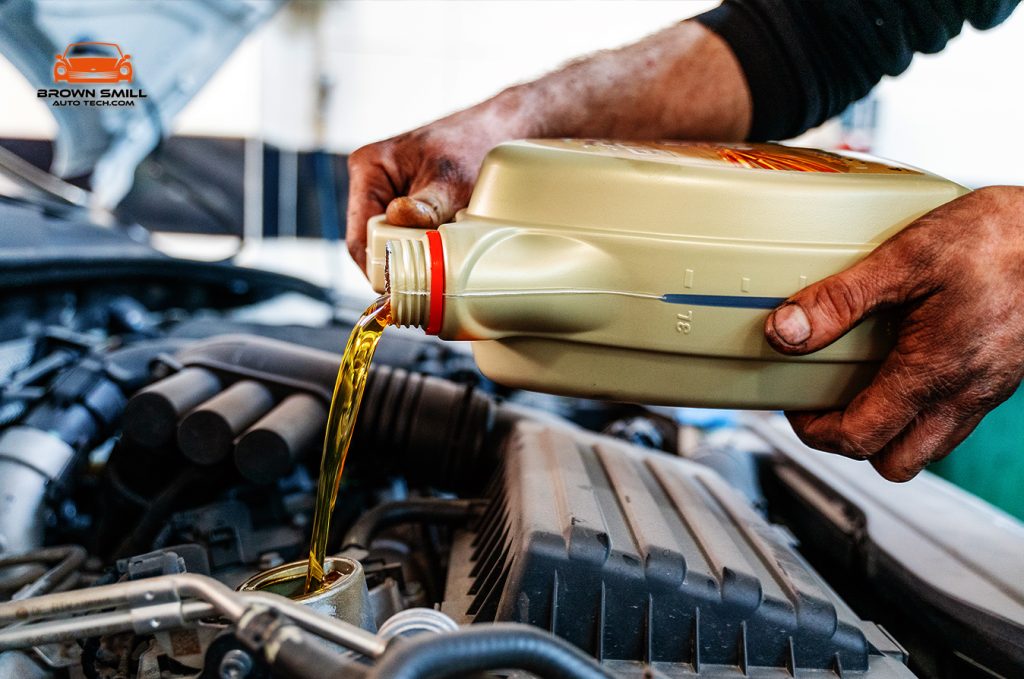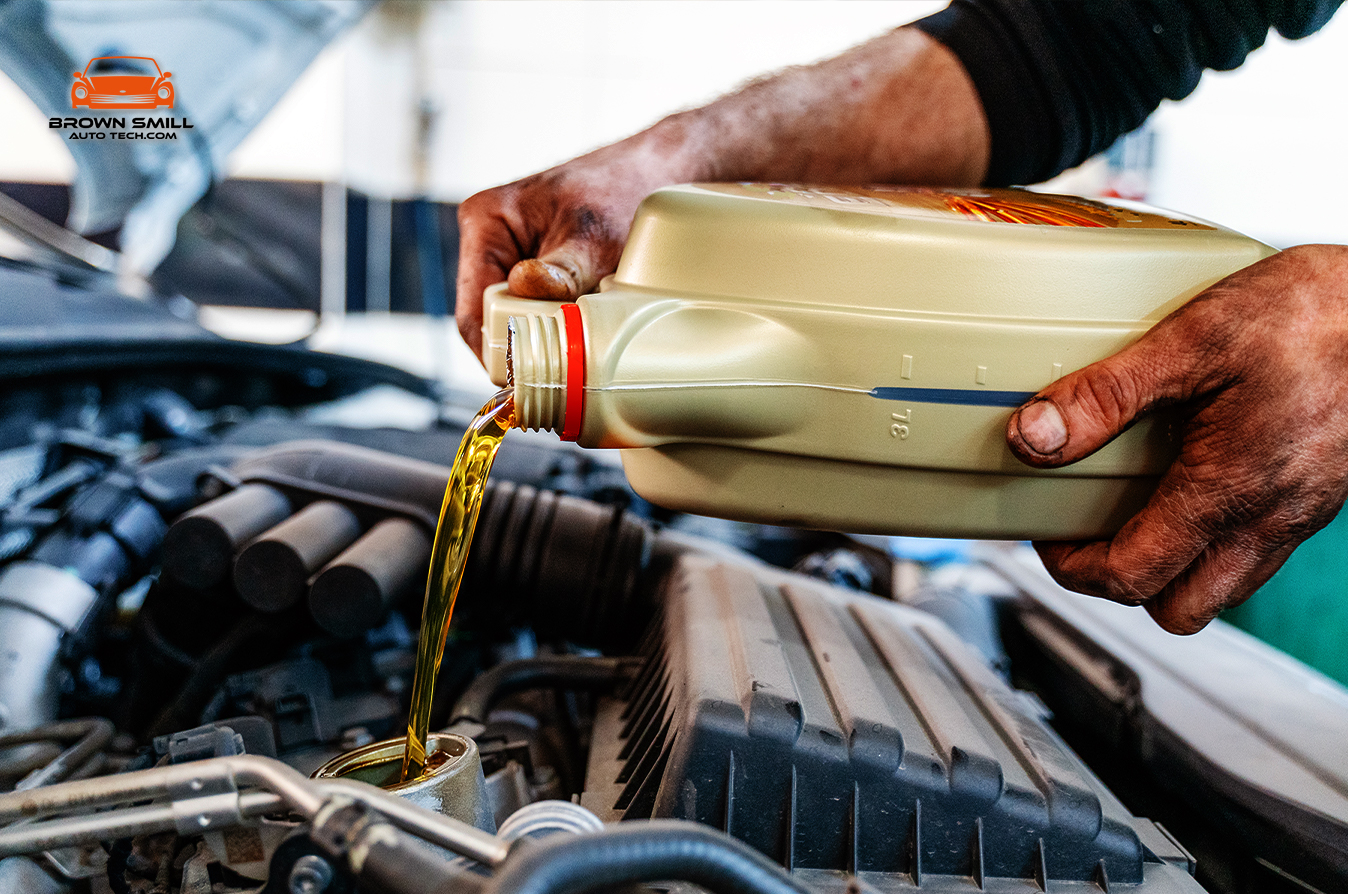No, changing your own oil will not void your warranty. Your warranty is based on the manufacturing of the car, not on maintenance.
If you’re thinking about changing your own oil to save a few bucks, you might be wondering if it will void your warranty. The short answer is: no, it won’t. You are free to change your own oil or take your car to any qualified mechanic – it won’t affect your warranty coverage either way.
That said, there are a few things to keep in mind if you do decide to go the DIY route. First, make sure you use the right type and weight of oil recommended by your car’s manufacturer. Second, don’t forget to properly dispose of the used oil – most auto parts stores will accept it for recycling.
And finally, be sure to keep meticulous records of all the work you’ve done on your car; this can come in handy if you ever need to file a warranty claim down the road. So go ahead and change that oil with confidence – just be sure to do it right!
Does Doing Your Own Car Maintenance Void Warranty?
No, doing your own car maintenance does not void the warranty. In fact, many manufacturers highly encourage customers to do their own car maintenance in order to keep the warranty valid. The only time doing your own car maintenance would void the warranty is if you damaged something while doing the maintenance and it was not due to a pre-existing condition.
Can You Change Your Own Oil on a New Car?
Most carmakers recommend that you change your car’s oil every 5,000 miles or so. However, if you drive a new car, you may be able to go much longer between changes. New cars often have synthetic oil, which can last up to 15,000 miles before it needs to be changed.
Check your owner’s manual to see what the recommended interval is for your specific vehicle. If you decide to change your own oil, it’s important to use the right type of oil for your car. Synthetic oils are often more expensive than conventional oils, but they can last longer and provide better protection for your engine.
Be sure to consult your owner’s manual or ask a mechanic before switching to synthetic oil. To change your oil, first, warm up your engine by driving around for a few minutes. This will help the old oil flow out more easily.
Then park on a level surface and turn off the engine. Place a drip pan beneath the drain plug at the bottom of the engine (this is where the old oil will come out). Remove the drain plug and let all of the old oil drain into the pan (it should take about five minutes).
Once all of the old oil has drained out, replace the drain plug and fill it up with fresh oil (again consult your owner’s manual or a mechanic to figure out how much). Start up the engine and check under the hood to make sure there are no leaks coming from any of the hoses or fittings. If everything looks good, you’re all set!
Will Using Wrong Oil Void Warranty?
If you use the wrong type of oil in your car, it is possible that it could void your warranty. However, this would depend on a number of factors, such as what type of oil you used, and whether or not there was any damage caused as a result. If you are unsure about what type of oil to use in your car, it is best to consult with a professional or manufacturer.
Is It Fine to Change Your Own Oil?
Most carmakers recommend an oil change between 7,500 and 10,000 miles and many will argue that changing your own oil is perfectly fine. However, there are some risks associated with changing your own oil that you should be aware of before attempting it yourself. One of the biggest risks is overfilling the engine with oil.
When this happens, it can cause serious engine damage. It’s also important to make sure you dispose of the used oil properly. Improperly disposing of used oil can contaminate soil and water supplies.
If you do decide to change your own oil, be sure to consult your car’s owner’s manual first and follow all instructions carefully.
Will Do My Own Maintenance Void My Warranty?

How to Prove Oil Change for Warranty
If you’re looking to prove that you’ve changed your oil for warranty purposes, there are a few things you’ll need to do. First, find your car’s maintenance schedule in the owner’s manual. This will tell you how often you’re supposed to change your oil based on the type of oil and driving conditions.
Next, locate your most recent oil change receipt. This should have the date, type of oil used, and mileage at the time of service. If you don’t have this information, many auto shops can look up when your last oil change was performed using your vehicle identification number (VIN).
Finally, take both the maintenance schedule and receipt to your dealership or mechanic so they can verify that everything is up to date and within warranty requirements.
Will Changing My Own Oil Void My Warranty Toyota
If you’re the do-it-yourself type, you may be wondering if changing your own oil will void your Toyota warranty. The answer is: that it depends. According to Toyota’s warranty terms and conditions, “routine maintenance services” like oil changes are not covered under the warranty.
So if you change your own oil and something goes wrong with your car as a result, you’ll have to pay for the repairs yourself. However, there are some exceptions to this rule. For example, if a dealer refuses to perform a warranty-covered repair because you changed your own oil, Toyota may step in and cover the cost of the repair (this is called the “Implied Warranty of Fitness for a Particular Purpose”).
Also, if changing your own oil causes an otherwise covered part to fail (like the engine), Toyota may still cover the cost of repairs for that part. In short, changing your own oil won’t automatically void your Toyota warranty – but there are some circumstances where it could end up costing you money down the line.
Does Changing Your Own Oil Void Warranty Chevy
If you’re a Chevy owner, you may be wondering if changing your own oil voids your warranty. The answer is no – as long as you use the proper oil and follow the recommended maintenance schedule, your warranty will remain intact. That said, there are some benefits to having your oil changed by a professional.
They can catch any potential problems with your car before they become serious (and expensive) issues. Plus, they’ll dispose of your used oil properly – something that’s important for both the environment and your wallet. If you do decide to change your own oil, just be sure to use the right type of oil and follow all of the manufacturer’s instructions.
Doing so will keep your car running smoothly and help you avoid any costly repairs down the road.
Does Changing Your Own Oil Void Warranty Kia
If you’re a Kia owner, you may be wondering if changing your own oil voids the warranty. The answer is no, as long as you use the correct type and amount of oil specified in your Owner’s Manual. However, if you don’t follow these guidelines and something goes wrong with your engine, it’s possible that your warranty could be voided.
So while changing your own oil won’t automatically void your warranty, it’s important to make sure that you’re using the right products and following the proper procedures to avoid any potential problems down the road.
Conclusion
Most carmakers recommend that drivers change their own oil, but some worry that doing so will void their warranty. The truth is, as long as you use the right type of oil and follow the recommended maintenance schedule, changing your own oil should not void your warranty. In fact, many dealerships offer discounts to customers who change their own oil.
So if you’re comfortable with getting your hands dirty, there’s no reason not to save yourself some money by changing your own oil.




Leave a Reply